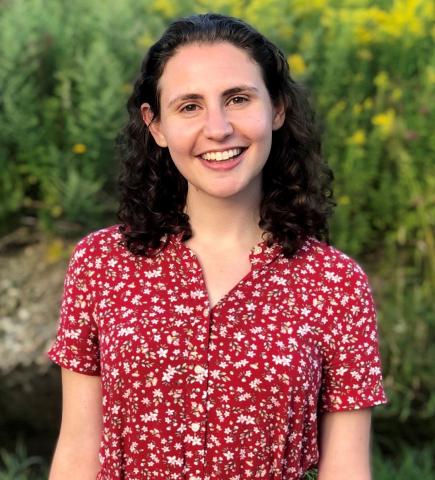Sarah Cohen, ’22, Awarded Ernst Freund Fellowship in Law and Philosophy
Sarah Cohen, ’22, has been awarded the Ernst Freund Fellowship in Law and Philosophy to study the moral and political questions surrounding the Title IX proceedings used by many universities and colleges to adjudicate allegations of campus sexual assault. The disciplinary systems evolved from Title IX of the Education Amendments of 1972, which prohibits gender-based discrimination in federally funded schools, and the tribunals at their center are often criticized as unfair by both accusers and the accused.
“The system in its current form is relatively new, and it has received a lot of media attention and scrutiny in the last few years with the growing awareness of campus sexual violence and the rise of the #MeToo movement,” said Cohen, who studied philosophy as an undergraduate at Yale and is the sixth recipient of the prize. “The bad news for everybody involved is that no one is really happy with this system.”
The $5,000 award is given each year to either a law student or a graduate student in philosophy. The fellowship, designed to encourage advanced law and philosophy scholarship among graduate students, was established in 2016 after Professor Martha C. Nussbaum, the Ernst Freund Distinguished Service Professor of Law and Ethics, donated a portion of the proceeds from her Kyoto Prize to the Law School and the University’s Department of Philosophy.
Through her project, Cohen seeks to create a normative theory of Title IX—an amendment to the Civil Rights Act of 1964 that originally applied mostly to athletic opportunities—that would provide a template for answering the most pressing questions raised by the current approach and enable a reimagining of the system.
“What we basically have right now are campus administrators who are serving as fact-finders and judges. [They are] applying this body of federal civil rights law, as articulated by a regulatory agency, to private disputes among private parties to adjudicate ... claims of criminal conduct,” said Cohen, who has worked as a research assistant to Nussbaum and to Brian Leiter, the Karl N. Llewellyn Professor of Jurisprudence. “It’s a mishmash of different existing areas of law, and understandably this has created a lot of confusion about basic procedural questions, such as: What due process rights should the accused have? What's the standard of proof? What rules of evidence should apply?”
Cohen will explore two areas of literature: philosophical approaches to criminal law and private law, which she hopes “will provide a template for thinking about how distinct legal forms serve distinct kinds of justice,” and feminist political philosophy, which “will help me think about the unique purpose of having an institution that is designed specifically to address sex- and gender-based harms,” she said.
By studying the legal issue through a philosophical lens and asking the broader questions, including about the tribunals’ purpose and mission, Cohen said she hopes to develop a clearer guide for resolving specific questions.
“Then we can start to figure out how to design the institution that best fulfills its social purpose,” Cohen said.
As Nussbaum’s research assistant last summer, Cohen did research on new trans feminist scholarship for a piece that Nussbaum was writing on Crossing, the famous 1999 autobiography of transgender economist Deirdre McCloskey, for a volume in McCloskey's honor.
“I knew what a wonderful and interesting philosopher she was because she showed great discernment in which philosophers were worth citing and … were really saying something interesting,” Nussbaum said. “It was a really a great working experience, even though it was all by Zoom.”
Leiter said he first had Cohen in class last spring, when she distinguished herself in his Jurisprudence class by “the quality of the questions she would ask.”
“Despite the [fully online] format, I knew I could always count on Sarah to come forward with an important question … that helped me think about the issues and that I think actually advanced the understanding for everybody in the class,” he said.
The fellowship is named for Ernst Freund, an intellectual architect of the University of Chicago Law School, who believed that interdisciplinary cooperation between lawyers and philosophers was essential to address pressing social problems. When the fellowship was being configured several years ago, Professor Gabriel Richardson Lear, then the chair of the Department of Philosophy, suggested that the best way to incentivize deeper learning in both disciplines was to offer the prize for proposed research rather than a finished paper.
Past recipients have included Jared Mayer, ’21, who won in 2020; Laurenz Ramsauer, a PhD candidate in the Department of Philosophy, who won in 2019; Faith Laken, ’20, who won in 2018; and the inaugural recipients, Taylor Coles, JD ’18, a PhD candidate at the University of Pittsburgh, and Molly Brown, a PhD candidate in the University of Chicago’s Department of Philosophy.
Cohen said she’s eager to see where her research leads her over the next year.
“I don't exactly know where my thinking is going to end up on these issues,” she said, “which is why I'm incredibly grateful to have the institutional support and the encouragement to take risks and spend time thinking seriously about these big and important questions.”


